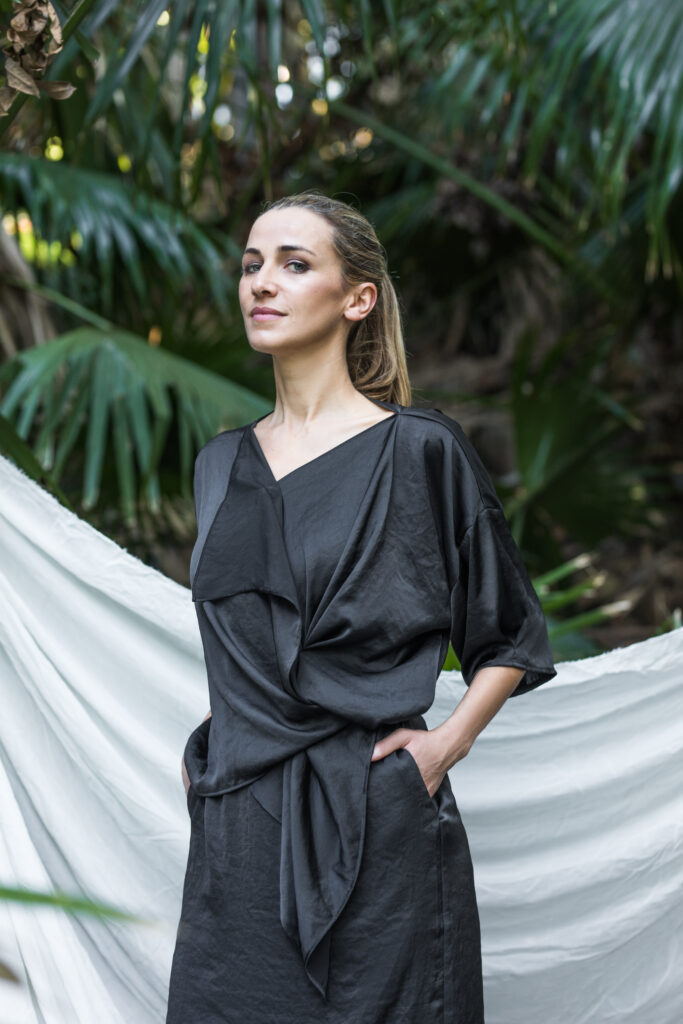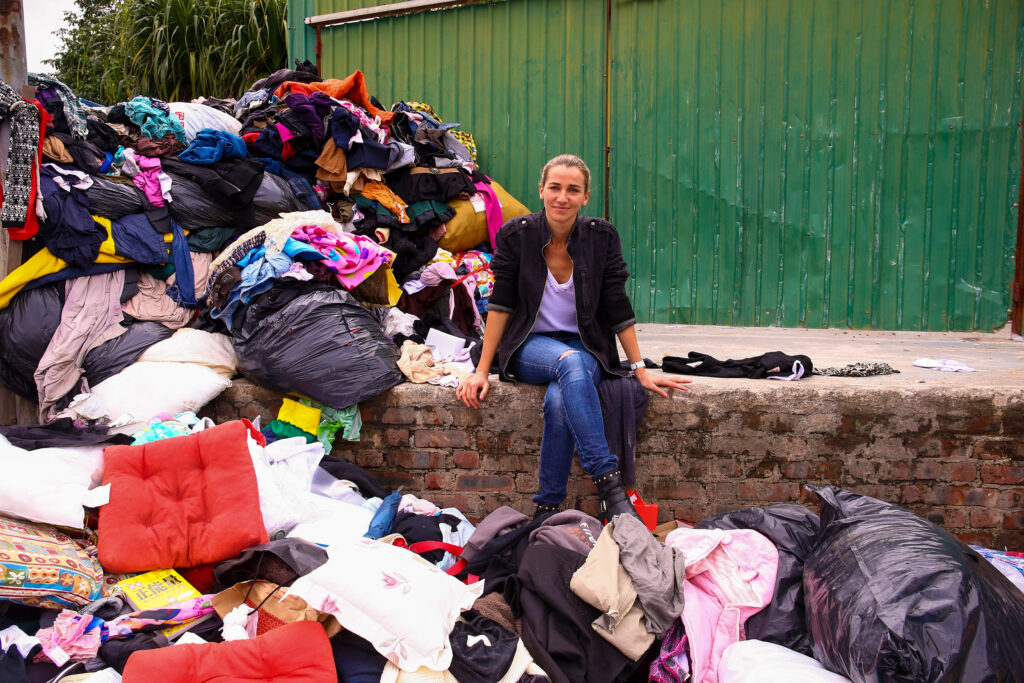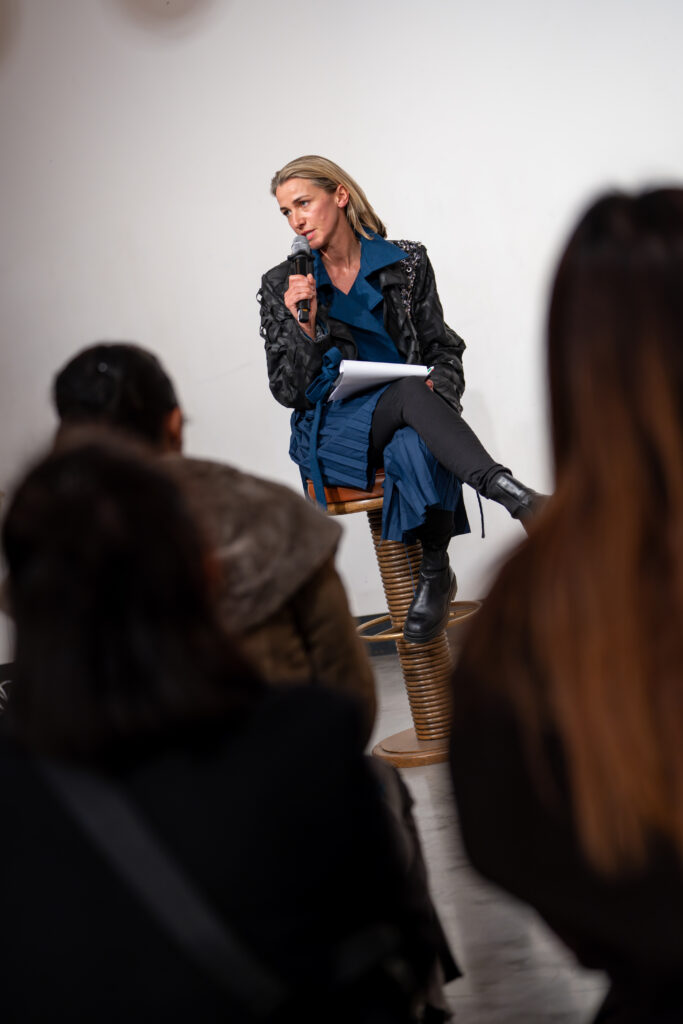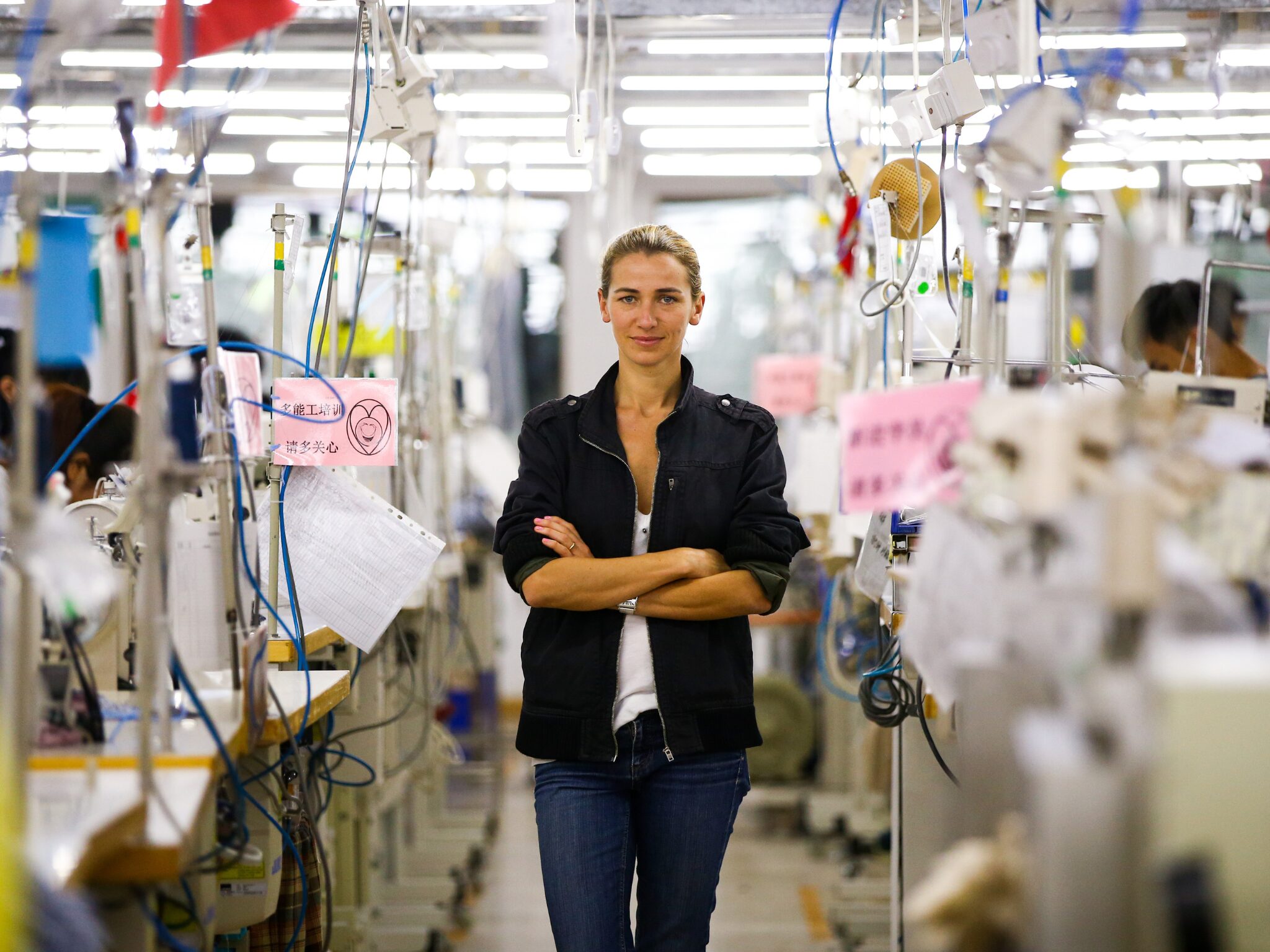Q&A with Redress & The R Collective Founder Christina Dean: ‘Our Work is Just a Few Little Sprinkles of Goodness Right Now’
7 Mins Read
Christina Dean, founder and CEO of Redress and The R Collective, speaks to Green Queen about the evolution of sustainable fashion, what she’s learnt in her 17 years as an activist, and the impact of online shopping and e-commerce.
A decade ago, we spoke to sustainable fashion icon Christina Dean, founder of the Hong Kong-based charity Redress, who said she felt a personal responsibility towards a green, low-impact lifestyle. “I do what I can throughout my life streams, from the values I teach my children about not wasting resources and about caring about what happens to our future world to the consumption choices I make on a daily basis,” she said.
Then, five years on, we caught up with Dean again, who had begun The R Collective, an offshoot fashion brand from Redress. She reflected upon the future of sustainability, female leadership, and zero-waste supply chains. “We all have a slightly different relationship with fashion, and it is okay. Wherever you are within the fashion industry, make your bit more sustainable,” she suggested.

The Redress charity was founded in 2007 and works on inspiring positive environmental change and promoting sustainability in the fashion industry by reducing textile waste, pollution, water and energy consumption. The R Collective, meanwhile, was launched in 2017 as a circular fashion brand that uses rescued textile waste, sourced from luxury brands, mills and manufacturers and upcycling these materials into elegant clothing pieces. A quarter of its profits go back to Redress. “We all need to satisfy our desire for creativity, but it should not come at the cost of the planet,” Dean explained in 2019.
Now, we touched bases with the activist and entrepreneur again, exploring the changes she’s seen in the fashion industry, her growth as a leader, and the evolution of Redress, 17 years from launch.
This interview has been edited for clarity and concision.
Green Queen: We interviewed you 10 years ago (and five years ago too). A lot of the data shows waste is getting worse. How much has changed when it comes to fashion, waste and the Redress mission?
Christina Dean: Redress is 17 years old, and it was fashion’s horrific waste rates that led me to start an NGO focused on reducing textile waste. I stumbled upon fashion’s waste and pollution problems purely by chance as a journalist writing on environmental pollution. At that time (2005/06), fashion’s waste was a ‘hush-hush’ issue, basically swept under the carpet.
Seventeen years on, the cat’s out of the bag on fashion’s highly wasteful and polluting ways. We have data that makes everyone – from the C-suite to everyday citizens – sit up and take notice. One headline estimates that the equivalent of one dumper truck of textiles is either landfilled or incinerated every second around the world. As if that wasn’t a smack in the face, it’s estimated that textile waste is set to increase by about 60% between 2015 and 2030. Left unchanged, the fashion industry is projected to use 26% of the world’s carbon budget by 2050. So, this spells very bad news for the planet.
So with a worsening situation, you might wonder what on earth have we been doing for 17 years if all that we’re seeing is a worsening textile waste landscape! Yes, the reality can be quite dispiriting because, on a bad day, we might feel like we’re on a sinking ship. But on all good days, which are most of them, we continue to strongly believe that the fashion industry is a highly impactful industry to influence positively, so we forge on.
In terms of our mission, over the last 17 years, we have adapted our first founding mission three times to reflect the changes in the problems and solutions that we seek to influence. We’ve gone from “promote sustainable fashion” to “reduce waste in fashion” to now “accelerate the transition towards a circular fashion system by educating designers and consumers to reduce fashion’s negative environmental impacts”. Despite these apparent changes, the essence of our spirit and resolve is unchanged, and that is, basically, to shift fashion from being a polluter to a pioneer.
GQ: How much have you changed as a leader and activist in that time?

Christina Dean: I’ve grown up so much in 17 years, in so many aspects of my life and work. Looking at the fashion industry, I’ve gone from the early days of pointing angry fingers at various parts of the fashion industry to now wholeheartedly understanding that we must embrace the industry and work within the reality of business and its various parameters. I am very pro-industry as a sustainable way to drive long-term change.
I have also put my pointy fingers away when it comes to consumers. I used to be relatively frustrated and judgmental about what could be considered rather negligent consumers who shop until they drop, so to speak. I am now humbler and more understanding about why consumers love to shop, the deeper psychological desires underpinning this, and I also accept why many are not really that interested in sustainable fashion issues, with so many other competing worries, like how to pay their bills being one obvious example.
I guess 17 years of life – that saw us found Redress and The R Collective and have four kids and get divorced – has given me a better understanding of life and self. So I’m more accepting of the disorder around me, whether that’s in the office, in the supply chain, in an ESG report, or in my own head! Despite this acceptance, I’ve not mellowed at all. I see the urgency to act as being greater than ever before, and so my focus and resolve are as they ever were. I just realise that change happens slowly and that our work is just a few little sprinkles of goodness at this point in time.
GQ: What’s your biggest learning, 17 years later?
Christina Dean: I’ve come to respect the fashion industry, its suppliers, its spinners, weavers, farmers, etc., very deeply, and I see such wonderful and enormous talent, generosity, determination, and humanity and love throughout the business. I’ve met the most incredible activists working in the fastest and cheapest of the big fast-fashion brands; I’ve met recyclers with bigger brains than their machines; and I’ve met CEOs with more conviction for change than prolific activists.
So I’ve come to realise that the humans behind the machines, spreadsheets, steering wheels, and boardrooms of fashion are pretty amazing people, who bring optimism to the challenges at hand. We are all only human, against some inhumanly complex issues, so I’m lucky to work with incredible people.
GQ: Did you plan for Redress to become this big? Was this always your plan or did it get bigger than your original ideas?

Christina Dean: Redress becoming what it is today is a bit of an accident really. When I founded it, I never thought for a moment that 17 years on, I would still be as passionate and excited about the mission as the day I decided to start it. I’m lucky that I am a curious and collaborative person and that this, coupled with a good sense of humour and a glass-half-full nature – which is important when certain things hit the fan! – have enabled Redress to rise from a toddler, tween to teen.
It’s my dream that Redress survives without me – I’m always watching out for that bus; you just never know! We are well on our way now, with a strong board, great executive director and senior management team, and with a longer-term strategy and fundraising approach.
We have a saying at Redress: “I’d rather be a pirate than join the navy.” And this sums up our spirit, so each day remains a hustle in the office as we’re always on our toes for the next rollercoaster ride.
GQ: Did you foresee the negative effects of e-commerce and online shopping?
Christina Dean: Not really. I would not call myself highly astute at consumer trends and habits. That said, it’s obvious that when something becomes cheap and convenient, it takes off. This is as true for takeaways as it is for buying clothes online. So it doesn’t take a rocket scientist to know that the proliferation of e-commerce, especially during COVID, has changed the way we buy clothes – i.e., more, more, more – as indeed e-commerce has changed how some clothes are produced – i.e., more poorer quality fabrics can get away with it online.
I remain shocked by e-commerce’s high return rates, which are around 30% of all purchases globally. I’m personally not a very ‘typical’ fashion consumer, in that I don’t sit around online surfing for clothes that I don’t really want/need, so I find it surprising that people would overconsume styles and sizes and then post clothes back. I’ve seen firsthand the waste this creates because many businesses are unable, for various reasons, to get their customers’ returns back.



